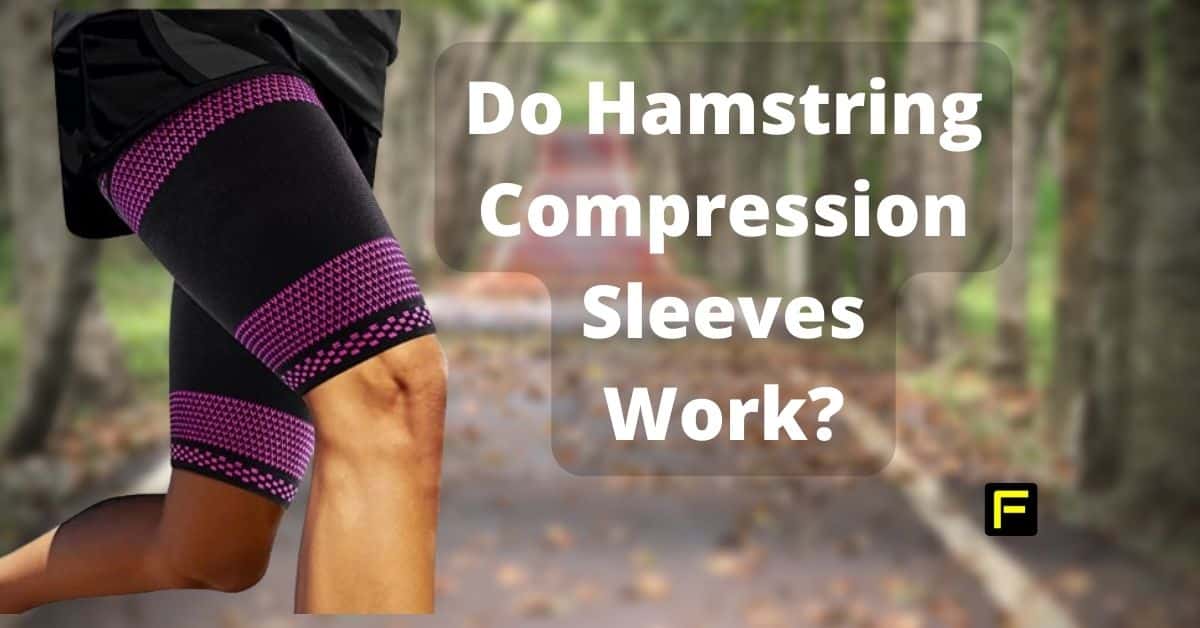Hamstring injuries often appear suddenly and can weeks, even months to heal depending on the severity of the injury. Many athletes want to continue to train and compete and look to the best compression sleeves for thighs to treat soft tissue injury. It includes calf and thigh strains causing sprains and swelling. But do hamstring compression sleeves work? Continue reading to learn how sleeves can help your pulled hamstring.
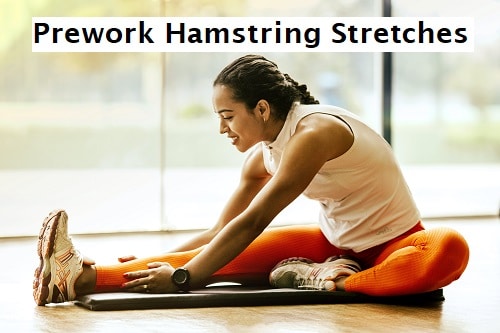
This site is provided for informational purposes only and is not intended to provide specific medical advice, diagnosis, or treatment. You should always seek advice from a physician or other qualified health care providers for your individual medical needs.
Compression Sleeves
What is a thigh compression sleeve?
A sleeve is commonly used to provide support for the muscles and joints, prevent injury, and promote healthy circulation. This is a similar sleeve used for injuries to the elbow knee wrist as well as ankle elbow knee areas.
How does compression gear work?
Compression gear is designed to help athletes and people who are active in their day-to-day lives. It helps with recovery, blood flow, and muscle soreness.
This technology comes in a variety of products, such as compression socks, pants, shirts, and thigh compression sleeves, that are tight around the body to provide support for muscles and joints.
Sparthos thigh compression
One of the best-selling sleeves on Amazon is the Sparthos Thigh Compression Sleeve for Hamstring Support. Often recommended by trainers and doctors, the Sparthos thigh sleeve will provide relief from injuries around the thigh, hamstrings, quadriceps, and groin areas. For more information check the current price here.
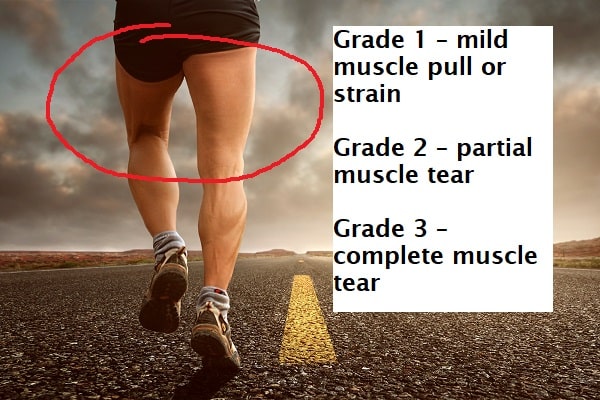
A sleeve is made of elasticized material that is wrapped tightly around the limb to create a compression effect. They are often used to provide support for the muscles and joints, prevent injury, and promote healthy circulation.
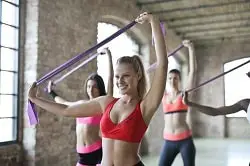
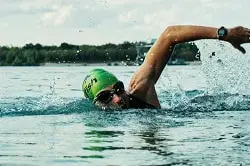

Top Compression Sleeve for Thigh and Hamstring
A thigh compression sleeve is a great way to help with recovery and injury prevention. They can be worn during or after exercise, or even as a preventative measure.
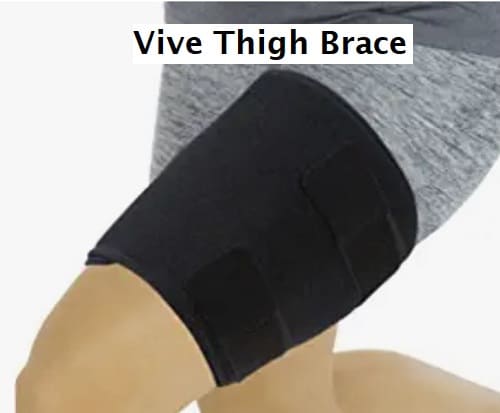
One of the most recommended thigh compression sleeve products is the Vive Thigh Brace. It provides targeted compression therapy by supporting the hamstring and quadricep during the recovery of strains and pulls. What I like best is this sleeve can be securely tightened by dual velcro fasteners to suit your personal needs. The adjustable compression wrap is constructed with a latex-free, nonslip neoprene for exceptional support throughout any activity.
There are many different types of thigh compression sleeves on the market, so it can be difficult to know which one is best for you. Here are some things to consider when buying a sleeve for compression:
– What is your budget?
– What type of activity will you be using injury compression sleeves for?
– How much support or compression do you need?
– Do you want a sleeve that is easy to put on and take off?
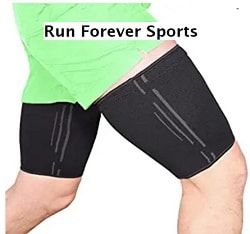
Are you dealing with pulled hamstring pain, groin pain, quadriceps, or thigh pain? You know how devastating that can be. The compression sleeve from Run Forever Sports can make you feel confident your legs can support your body. Check current price here on Amazon. Whether you running, jogging, walking, or just need relief from occasional arthritis, this thigh sleeve provides professional-grade support and is made of 80% Nylon and 20% Lycra to keep your sleeve securely in place.
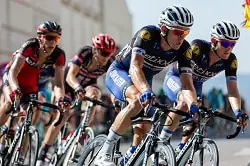

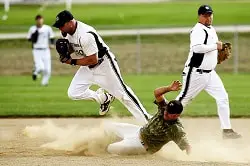
➥Best Hamstring Compression Sleeve
When it comes to selecting the best sleeve for the job of compression, one that supports thigh compression for both men and women, the Bauerfeind compression sleeve is my current favorite.
While these sleeves are on the higher end of the price scale, I feel their performance justifies the cost. As I get older, I find myself relying more and more on braces and supports for a variety of pain. It’s all a small price you pay for staying active!
What I like the most about this sleeve is the super, secure fit. They come in a variety of sizes so you can get the best fit, they also come in 7 different colors as well.
For the runners in the crowd, this sleeve is worth checking out.
They come in pairs, although I normally just wear one on my right leg. It provides extra warmth to leg pain I’ve had for some time.
These sleeves also come with a 100% money-back guarantee if you’re not happy with your purchase, which is good because sometimes sizing can be tricky with these products in general.
How Compression Sleeves Work
Hamstring strains are the result of a sudden pull or stretch of the hamstring muscle. The muscles are located at the back of the thigh and help to flex (bend) your knee and extend (straighten) your hip.
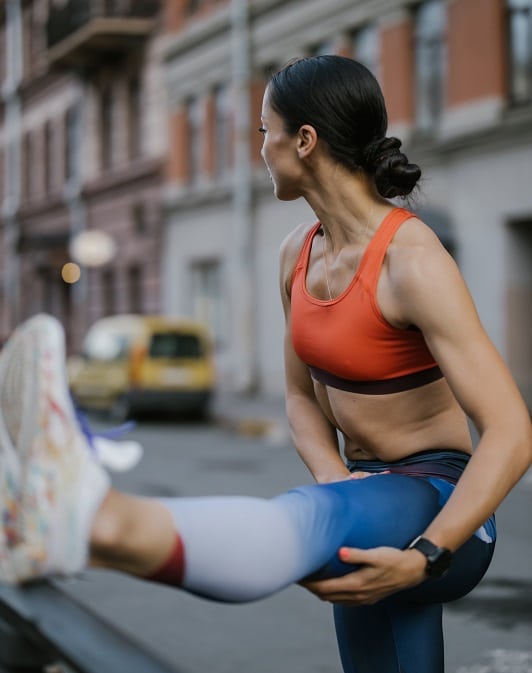
There are many ways to prevent hamstring injuries, but stretching is one of the most effective methods. Stretching before exercise can help prevent injury, as well as after exercise when muscles are warm and more flexible. (NHS – Hamstring Injuries)
Photo credit: Cottonbro
Sleeves work by applying pressure to the injured area, which helps to reduce swelling and support the weakened muscle. A sleeve also provides warmth which can help to diminish pain, increase circulation, and speed up healing.
When it comes to sleeves for compression, there are many different types of sleeves on the market today that can be used for a variety of pain and injuries including but not limited to: sleeves for shin splints, sleeves for plantar fasciitis, sleeves for runner’s knee, and iliotibial band syndrome, and more.

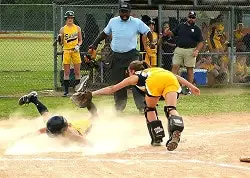
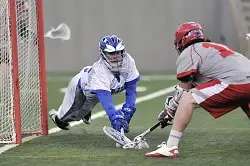
Great Compression Sleeve Benefits for Muscle Strain
Compression sleeves are a type of sleeve that has a tight and elastic material that provides compression on the muscles in the area of the body where it is applied.
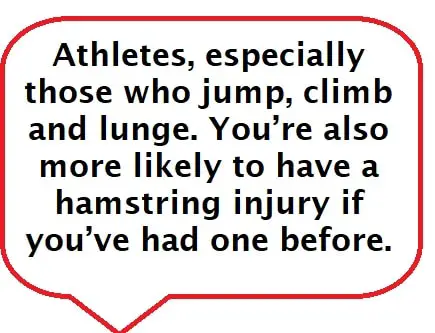
The benefits of a sleeve for hamstring strain include:
– Compression helps reduce swelling
– Compression increases blood flow
– Compression improves muscle performance
– Compression increases the range of motion
– Compression promotes healing
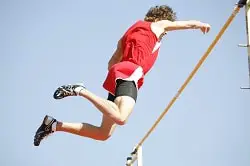

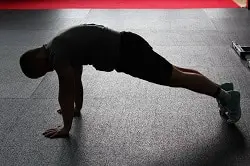
Injury Compression Sleeve – Drawbacks for Thigh Strain
A compression thigh sleeve, such as the Bauerfeind model is used to reduce swelling and muscle spasms. They are also believed to help with blood circulation. But, they can have some drawbacks as well.
Thigh compression sleeves should not be worn for more than 12 hours at a time, because compression can restrict blood flow and lead to skin breakdowns.
They should also not be worn while sleeping because the compression level of the sleeves is too high.
How to heal a thigh fast
Muscle injuries are common in sports and can be caused by a sudden movement or a sudden stop. The hamstring is the muscle that connects the thigh to the lower leg. It helps you bend your knee and extend your hip.
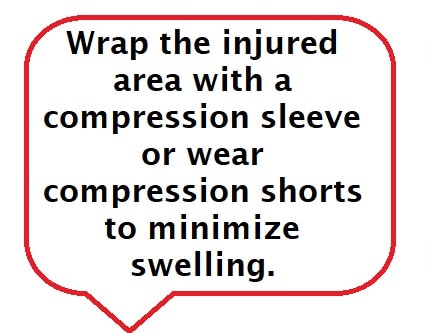
The most common hamstring injury is a strain, which is when one or more of the muscles are stretched too far. A pull occurs when one or more of the muscles are partially torn from their attachment to bone.
Hamstring injuries can be treated with rest, ice, compression, and elevation (RICE). As well as with medications such as ibuprofen or naproxen.
Hamstring injuries can be painful and can make it difficult for an athlete to work out, play sports, or do anything that requires using their leg.
When the hamstring is injured, it’s important to stop doing activities that might cause further injury and then start a rehabilitation process.
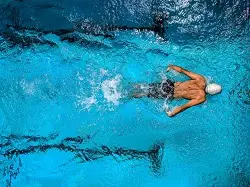
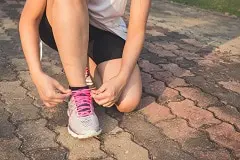
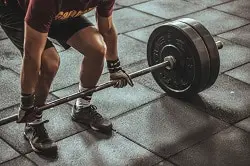
The best exercises for thigh muscles
Muscles can be strained or pulled by overuse, injury, or sudden movements.
The most common injuries occur when a person is running, jumping, or kicking.
The best exercises for muscles are those that strengthen them without putting too much strain on them.
These exercises include:
– Straight leg raises
– Hamstring curls
– Leg extensions or leg curls
– Sitting hamstring curls- Donkey kicks
– The single-leg calf raise
– Abductor curls
– Drop-knee sit-ups
The hamstring muscles are three different muscles: the semitendinosus, the semimembranosus, and the biceps femoris.
The hamstrings are located on the back of each thigh, extending to both hips. These muscles are attached to the pelvis via a large tendon known as the iliotibial band.
They’re also connected to the knee via a tendon known as the semimembranosus and run down the back of each shin to the foot.
How long should you wear a thigh compression sleeve?
If you have a mild hamstring strain, you can wear a thigh compression sleeve for up to 12 hours per day.
For a more severe strain, you should wear compression for no more than 8 hours per day.
-Do not use a compression strap if you have a knee injury
-Always consult with your doctor before using the compression strap
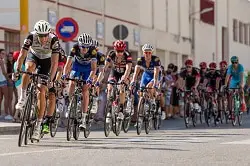


How to treat a thigh strain
Hamstring strains are a common injury among athletes. They can be caused by overuse, improper stretching, or sudden movements.
The most important thing to do is to rest and avoid any activities that may cause further injury. This includes running, jumping, and kicking.
The muscles should be iced for 15 minutes every hour for the first 48 hours after the injury occurs.
After 48 hours, ice should be applied every 2-4 hours for up to 10 days.
The next step is to use a compression bandage or wrap around the injured area and apply an elastic bandage over it to provide support and compression.
The injured person should also wear a brace for thigh compression or support on their leg when they walk to prevent any further damage from occurring.
How Should I Stretch?
Many people stretch their hamstrings by sitting on the floor and leaning forward. There are a couple of ways to stretch, however.
One is to stand with one leg slightly bent, then lean over the forward knee, reaching for something out of reach.
Another is to sit on a bench or chair and lean forward over your toes while keeping your back straight.
The most important thing to remember is that when you stretch, make sure to hold your stretches for at least 30 seconds to get the best results.
Can you exercise with a thigh pull?
A grade 1 pull is a mild injury that can be treated with rest and compression. A hamstring pull is an injury to the muscle, which is located at the back of the thigh.
The most common cause of a pull is overuse or sudden stretching of the muscle.
The best way to treat a grade 1 hamstring pull is to rest and compress it. Resting will allow your body to heal itself, while compression does help reduce swelling and pain in your leg. You can use a thigh sleeve or wrap around for thigh compression, but you should not exercise with this type of injury.
Grade 2 or 3 pull is when the injury causes a partial or complete muscle tear at the back of your thigh. This type of hamstring pull requires surgery to repair.
However, even with surgery, you might not be able to fully recover from it and must use crutches for support.
These types of injuries are often caused by extreme stretching or overload during a sport. The injury often happens to people who play sports like soccer, football, ice hockey, and other sports where there are explosive motions or sudden bursts of activity.
Difference between a compression sleeve vs brace for muscle injury
A hamstring compression sleeve is a type of garment that is worn on the thigh to provide support and compression. Sleeves are usually made of neoprene or nylon.
Compression can be used for a variety of purposes, such as working to help with recovery from injury, prevent injury, or provide warmth.
A thigh brace is a type of medical device that provides additional support and stability for the thigh muscles and groin area. It helps relieve pain & promote faster recovery from most kinds of groin, quad, hip, sciatica, & hamstring injuries.
What is nice about this brace is the compression wrap assists with everyday movement and mobility, and reduces tension on the muscles.
Conclusion: Do hamstring compression sleeves work?
Compression gear is designed to compress your muscles, which in turn works to help them stay warm and recover faster.
There are several theories behind how compression garments can aid in muscle recovery. Studies have shown some clear benefits to wearing compression garments for recovery. ((Pérez-Soriano P, García-Roig Á, Sanchis-Sanchis R, Aparicio I. Influence of compression sportswear on recovery and performance: A systematic review. Journal of Industrial Textiles. 2018;48(9):1505-1524. doi:10.1177/1528083718764912))
It is worth noting that the use of a sleeve for other injuries, such as calf strains and shin splints, is effective with some patients. The researchers found that resistance training had the highest clear recovery benefits from using compression garments, followed by cycling, allowing next-day performance improvements. ((Brown F, Gissane C, Howatson G, van Someren K, Pedlar C, Hill J. Compression Garments and Recovery from Exercise: A Meta-Analysis. Sports Med. 2017;47(11):2245-2267. doi:10.1007/s40279-017-0728-9))
Finally, several studies have displayed that there isn’t much difference in muscle recovery as it relates to the actual level of compression, so consider whichever compression level you like best. ((Beliard S, Chauveau M, Moscatiello T, Cros F, Ecarnot F, Becker F. Compression garments and exercise: no influence of pressure applied. J Sports Sci Med. 2015;14(1):75-83.))
Photo credits:
Photo by Pixabay: https://www.pexels.com/photo/high-angle-view-of-people-on-bicycle-248547/
Photo by Pixabay: https://www.pexels.com/photo/man-dunking-the-ball-sleeves-163452/
Photo by football wife: https://www.pexels.com/photo/football-player-brace-ankle-carrying-brown-football-sleeves-1618269/
Photo by Visit Almaty: https://www.pexels.com/photo/man-doing-ice-skiing-on-snow-field-in-shallow-focus-photography-did-848618/
Photo by mali maeder: https://www.pexels.com/photo/person-compression-thigh sleeves -sleeve back-swimming-on-body-of-water-brace-sleeves-1415810/
Photo by Andrea Piacquadio: https://www.pexels.com/photo/three-women-brace–s-ankle-doing-exercises-863977/
Photo by Jaime Reimer: https://www.pexels.com/photo/person-riding-on-gray-kayak-brace-2749500/
Photo by Joe Calomeni: https://www.pexels.com/photo/football-players-brace-718952/
Photo by Pixabay: https://www.pexels.com/photo/sport-ankle-game-competition-net-brace-67870/
Photo by Pixabay: https://www.pexels.com/photo/group-of-woman-playing-on-green-ankle-field-during-daytime-brace-163526/

Claudia Faucher is a fitness and lifestyle blogger who shares practical tips for women over 50 on staying active, stylish, and confident. As the creator of FitFab50.com and Beyond59.com, she covers topics like workout gear, beauty trends, and wellness routines. Claudia is passionate about helping others live their best life at any age.
